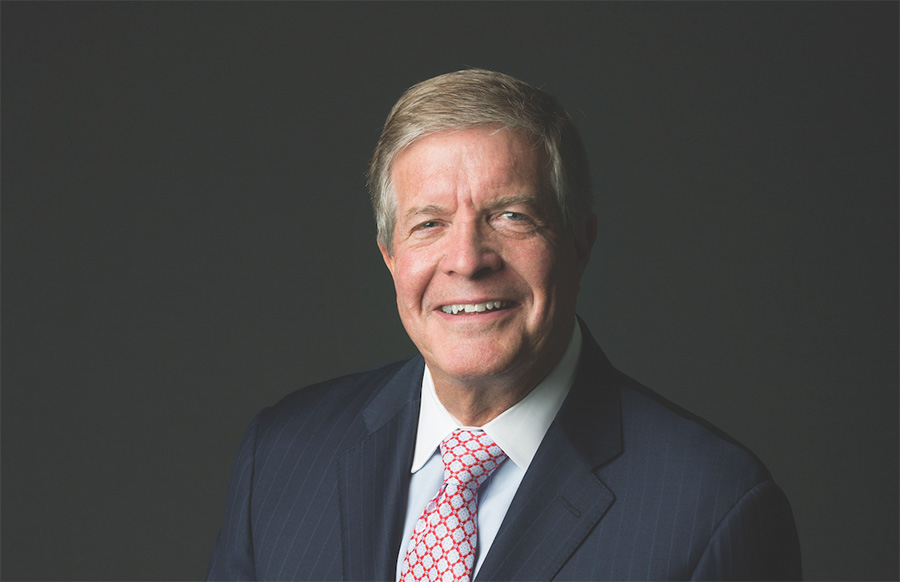How can leaders cultivate a sense of curiosity among their teams?
We live in fraught times. The multiple ongoing pandemics of deep political divides, racial injustice, economic disruption, war and the continued stresses of Covid-19 are taking their toll. These pandemics have continuously driven us apart: those who were once our neighbours, our colleagues, and even our own family members now often seem like our enemies, particularly when expressing a differing opinion. These fractures play out in our personal lives, our online spaces and in the workplaces where we’re striving to make an impact on our world. Engaging with these differences can feel daunting, but engage with them we must. As leaders, we are called to model a sense of hope for those around us.
To do this, a sense of curiosity and a commitment to humility are essential. We can start by asking ourselves a few key questions.
Where can I seek and develop authentic curiosity in my work, among my team, today?
Those we lead and work with desire lives of purpose and meaning. A recent study by McKinsey found that some 70% of Americans say they define their sense of purpose through work. Millennials, in particular, are looking for opportunities to align their work with their life’s calling.
Work is no longer simply about completing the checklist of each day and leaving our offices – it’s about finding ways to weave the deepest and most authentic threads of ourselves throughout and across our professional efforts.
Embracing this desire to connect with a sense of purpose is our best chance at attracting and engaging top talent, earning our team members’ trust and igniting their authentic curiosity. That curiosity is what leads organizations to the next chapter in their story.
One tactic to encourage curiosity is to invite our teams to adopt an ‘all things new’ mindset, one which frees them from doing their work as it has always been done and asks them to imagine a new, better path. This inherently asks people to be curious in their work, lead with innovation, scrap that which is no longer serving them, and form new partnerships.
At Belmont, we’ve done this recently by sunsetting some long-standing ongoing committees in favour of creating nimble (and seasonally-activated) task forces. These groups combine the strengths of team members from opposite ends of the organization to tackle issues that have been standing in the way of progress for years.
When we are committed to developing authentic curiosity within ourselves and across our work, we can embrace perpetual learning and operate with a growth mindset, catapulting us toward our collective goals.
How can my own innate sense of curiosity impact my organization?
Encouraging curiosity in our teams, and in our own approach to leadership, also supports our goals of employee retention and satisfaction. Organizations across the professional landscape have been challenged by the Great Resignation, which has seen millions quitting their jobs each month over the past year.
Anthony Klotz, a professor at London’s UCL School of Management, has been credited with both foreseeing and coining the term the ‘Great Resignation’. He is now forecasting that companies will need to continue to seek employee feedback and experiment with flexible options that can provide better work-life balance.
“We haven’t exited this environment where we’re surrounded by threats to our well-being,” Klotz recently told National Public Radio. “I think organizations are saying, ‘Employees don’t check that stuff at the door.’ We have to invest in their wellbeing and understand that we’re in an environment where the stressors are not just coming from the work itself or the workplace.”
Spending time investing in our employees and seeking to know them as fully-formed people – honouring their humanity – enhances their professional experience and creates an environment forged in care and compassion, an environment that breeds commitment and loyalty. There are always new stories, new viewpoints and new ways to perceive the world that we can explore with a genuine sense of curiosity. Understanding our employees’ points of view on their work, and their lives outside the office, can provide invaluable insights that inform our organizations’ next steps.
How can I build a community in my organization that operates with humility and openness to new ideas?
Beyond seeking to understand our employees and their needs, we must also build workplace communities that allow team members to work together well, even as they navigate a complex and polarizing world. Sam Davidson, a successful entrepreneur who serves as chief executive of Nashville-based company Batch USA, speaks on the topic of this genuine sense of community and how it can be built.
“Deep community handles disagreement with dialogue,” writes Davidson. “Shallow community handles disagreement with discipline. Great community leaders know that disagreement is the start of a discussion, not the end of it.”
I’ve long been a proponent of forming unlikely friendships with people who have different perspectives. These friendships benefit us by helping us learn from meaningful disagreements. Finding opportunities to forge such connections means surrounding ourselves with people who challenge our preconceived notions, and breaking out of one-sided echo chambers – especially those fostered by social media.
To help our teams embrace curiosity, we must strive to be less ‘right’ and, rather, find more meaning in all interactions, doing so by engaging in genuine community without pretences, assumptions or the desire to be right.
Instead of seeking one right answer, our curiosity can lead us to more possibilities beyond binary and two-dimensional options. This approach can lead to treasured relationships that help us think more deeply while intentionally building bridges.
As leaders overseeing organizations during the most challenging of times, the example we set in approaching our teams and our work with curiosity and humility plants the seeds for unlikely friendships. Leading with a foundation of honesty, and the ability to leave presumed consensus at the door, allow us to find mutual respect – and ultimately reconciliation in our differences.
Hosting these discussions in our spheres of influence can result in beautiful serendipity and levels of creativity that we might have previously found unimaginable.




